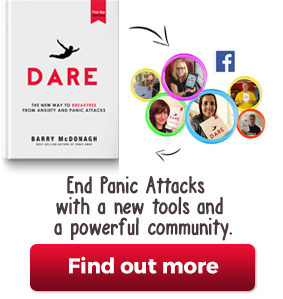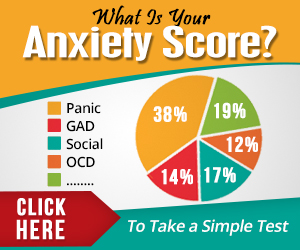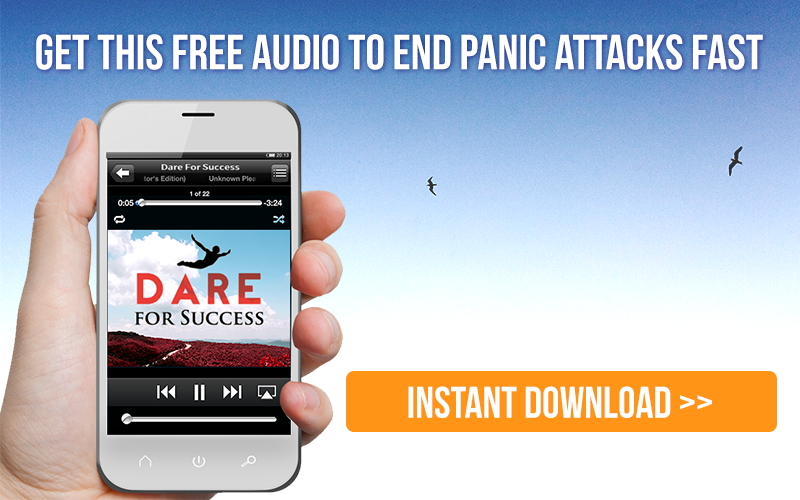If falling asleep has become one of the most challenging parts of your day, you’re not alone. Thousands of people that suffer from anxiety and panic attacks find it very difficult to end their day comfortably and may not be getting enough high quality sleep on a regular basis. Sleep deprivation not only makes you more irritable and tired the following day, but may also be the reason why you’re experiencing high levels of anxiety on a regular basis. Fortunately, there are some ways to sleep better tonight, and every night. I talk more about ways to break out of
Read more
For many people who suffer from panic attacks and experience high levels of anxiety, mornings can be a particularly stressful time of day. Some people find themselves always getting up in a frantic state, while others feel very depressed and experience a heightened state of worry upon waking. If mornings are particularly difficult for you, you need a strategy for getting your day off to a healthy start. I talk more about starting the day right in my book, Panic Away, and you can start implementing these strategies right away: 1. Start with a light stretch. Stretching will help increase
Read more
Do you wake up in a highly anxious state? Is it hard for you to focus and get control over your thoughts after a meal? If the answer is yes, one of the critical links related to your anxiety could be traced to your diet and your blood sugar levels throughout the day. If you have a history of diabetes or other health conditions that cause low blood sugar, you may be more vulnerable to high anxiety, stress and even a panic attack at certain times of the day. Many people who are suffering from hypoglycemia experience anxiety on a
Read more
For many people suffering from high levels of anxiety and frequent panic attacks, enjoying a peaceful state of mind seems like an impossible task. The constant mental activity can make it very hard to focus and concentrate. The constant mental activity can also be the root cause of an imbalance that leads to stress, frequent anxious thoughts and even compulsive behavior. I’ve found that one of the easiest ways to reduce anxiety is to deliberately shift your attention from your head, to your heart. You can do this simply by practicing the “art of gratitude” which I talk about in
Read more
For many people who deal with anxiety and panic attacks on a regular basis, nighttime can be a particularly difficult time of day because they are unable to fall asleep naturally. Not getting enough sleep can take its toll on your health and well-being, and can even increase the risk of an anxiety or panic attack in the near future. People stay awake at night for a number of reasons. They may be fearful or worried about an upcoming event, or they might simply be worried that they can’t sleep and won’t be able to perform at their best the
Read more
Alleviating mental anxiety you experience upon waking isn’t always easy. How often do you get up in an anxious state? Do you feel calm and well-rested when you first wake up, or is your mind just reeling with thoughts and ideas? If you suffer from frequent anxiety attacks and panic attacks, it’s likely that you experience a high level of stress and anxiety shortly after waking. The good news is, you can use this energy in a positive way and clear out those mental blocks before you tackle the day ahead. Julie Cameron talks about writing “Morning Pages” in her
Read more
Are you dealing with exhaustion, fatigue and feelings of malaise on a regular basis? High levels of anxiety and frequent panic attacks could be to blame. Many people who experience the unusual sensations associated with panic disorder soon learn that the physical effects of the adrenaline boost experienced during a heightened state of anxiety can take their toll on their energy levels. Anxiety is simply a response to a danger or threat, and we all experience varying levels of anxiety throughout our day based on what our brain and body is sensing is happening to us. We’re all equipped to
Read more
For many people who experience panic attacks and anxiety on a regular basis, intrusive thoughts become a part of day-to-day life. What if I get a panic attack in the middle of the grocery store? Why am I worrying about such strange things? What if I lose control of mind? Intrusive thoughts can come and go all day long at the most random moments of the day and take their toll on your stress levels. You might have difficulty concentrating, and react with a jolt every time you think a worrying intrusive thought. Just remember that you are not losing
Read more
Many people who suffer from panic and anxiety attacks on a regular basis find that the simple act of getting up in the morning starts the cycle. The reason for this is because your body is coming out of sleep and any feelings of anxiety are exaggerated. Most of us are not ‘morning’ people, so when you add anxiety to the equation you can see why mornings are usually the most anxious time of the day for people with an anxiety disorder. Desensitizing your body from being in an anxious state takes a lot of time and patience, and there
Read more
You already know the health mantra, “you are what you eat” but eating healthy isn’t just for people that want to lose weight or increase energy. Your diet has an effect on your central nervous system. Certain types of foods and beverages can increase your heart rate, make you sweat and even make you feel lethargic. If you’re not getting the right types of nutrients, your body may not be able to cope with stress and certain bodily functions can even break down. The result? An increased risk for anxiety and stress and even panic attacks. Most people eat a
Read more
Panic and anxiety tends to immobilize people, so much so, that some people have a fear of even leaving their home. Agoraphobia is the technical term used to describe people who are afraid of open spaces or being in crowded places like malls, outdoor markets and theme parks. If you’ve ever felt anxious about leaving home, or your “safe zone”, you’re experiencing some of the effects of agoraphobia. The truth is, those feelings are really just feelings of vulnerability. People who suffer from panic attacks feel like they are more vulnerable in certain situations, and so they have difficulty feeling
Read more
I think everyone that has experienced regular panic attacks has had this thought at one stage or another. It is directly connected to fear of losing control and freaking out. People’s imaginations run riot with ideas of losing mental control and doing something totally out of character and then as a result get locked up in a padded cell because of their strange behavior. When you experience high anxiety and panic your mind is not able to think rationally. The idea of being committed seems ridiculous to the non anxious mind but when your mind is operating from a high
Read more




